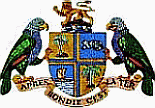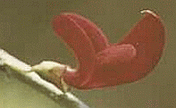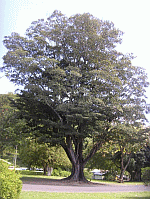
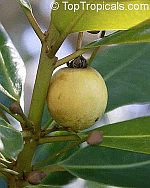
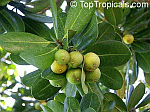
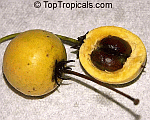
|
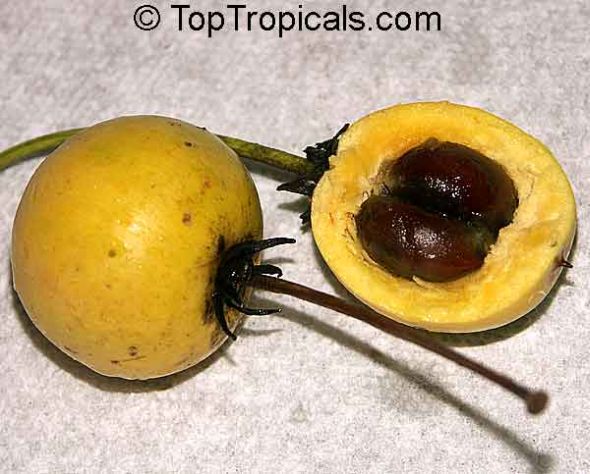
Plant Family: Belongs to the Sapotaceae or Sapodilla family, which includes Star Apple (Chrysophylum cainito) and Sapodilla (Achras zapota).
Description: Large, slow growing, erect, evergreen tree, reaching heights over 40 m (120 ft.), with base diameter up to 3 m (10 ft), one of the largest trees in tropical rainforests; wood heavy and extremely hard, twice as hard as oak or maple; leaves 5-15 cm long (2-6 in), clustered at end of twigs; flowers white and conspicuous, 1-8 in axillary clusters; ripe fruit yellow or greenish yellow, globular, medium-size, about 2 in across (5 cm), with usually one, sometimes two large, black seeds; tree tends to flower and fruit year round or seasonally; yields balata gum from milky white sap, and produces a heavy reddish brown timber.
Natural Habitat: Wet tropics with rainfall of about 60-160 in; best development in Lowland Rain Forest or Lower Montane Rain Forest; in Dominica, found in northern windswept coastal woodlands; propagation by seed.
Origin and Distribution: Native to Tropical America, ranging from Mexico to northern South America, including the Guianas, Venezuela, Peru, northern Brazil, and the West Indies.
Uses: Fruit edible fresh; heavy, strong wood used in commercial timber industry, including heavy construction, furniture, turnery and flooring; Caribs often use timber for construction; latex produces a nonelastic rubber used in manufacture of golf-ball covers and machine belts.
Indigenous Legends: Reportedly, sap from some species of genus has consistency and taste of cream, and, apparentlv, is used as substitute for cow's milk, but overindulgence said to result in severe constipation.
References:
Robert A. DeFilipps. Useful Plants of the Commonwealth of Dominica, West Indies. Smithsonian Institution, Washington, D.C. 1998
Dan H. Nicolson. Flora of Dominica, Part 2: Dicotyledoneae. Smithsonian Institution, Washington, D.C. 1991
Manilkara bidentata, Bulletwood. USDA Plants Database, USDA, Washington, D.C. n.d. (plants.nrcs.usda.gov)
P. L. Weaver. Manilkara bidentata: Ausubo, Balata. USDA Forest Service, USDA, Washington, D.C. n.d. (na.fs.fed.us)
Species Info - Cherry, Bolivian. Woodflooring International, Burlington, New Jersey n.d. (wflooring.com)
|
